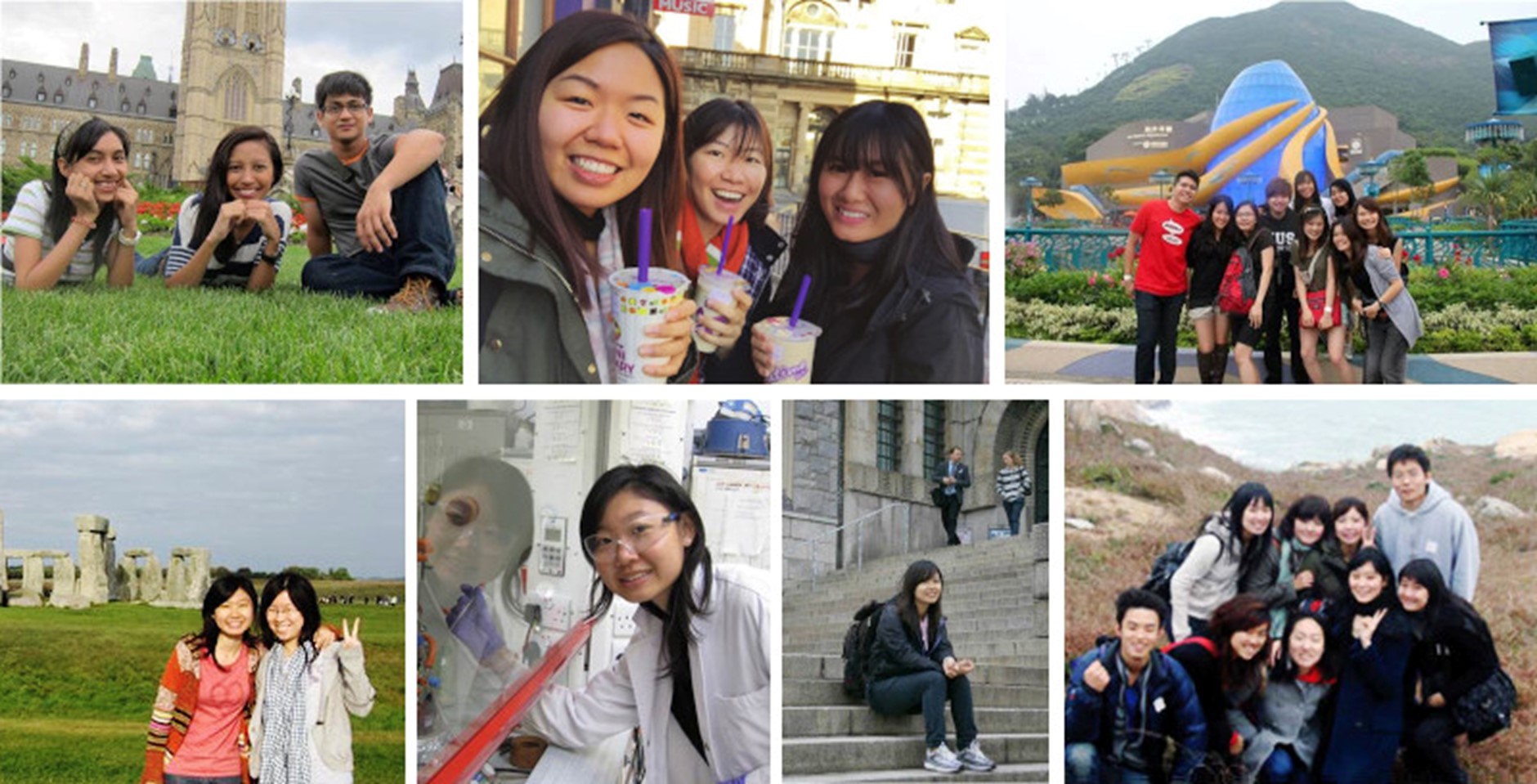Student Exchange

NTU offers enriching student mobility programmes with more than 100 leading companies and 150 partner universities in more than 30 countries through its Global Education and Mobility (GEM) initiatives such as GEM Explorer and GEM Discoverer.
Through the programmes, our students have the opportunity to attend exchange programmes with partner universities in many countries, including Australia, Canada, East Asia, Europe, New Zealand, the United Kingdom, and the United States. These exchanges enrich the university learning experience by allowing students to better understand different cultures and lifestyles, and gain new friends.
Courses read during the exchange can count toward your degree (but see below for restrictions).
Do look out for communique sent by OGEM office for application details.
[To Note] CCEB Students Planning to go for Exchange
Academic Progress
1. Ensure that you meet your graduation requirements with your exchange. Students who are transferring credits from another university must comply with the following requirements for graduation:
- Curriculum requirements for your degree programme
- Minimum candidature period
- Minimum AU of graded courses
- Credits that are transferred from exchange are Pass/Fail and NOT counted towards the minimum AU of graded courses
- The total AU from graded courses that a student has earned to-date is shown in his degree audit
- Minimum years of study spent at NTU
- Minimum CGPA for graduation
Refer to Academic Structure Handbook for more details (here)
2. Most courses in CCEB are offered in one semester only. Students need to plan carefully to ensure that they would be able to complete their remaining courses after the exchange, so that it is within their degree candidature in NTU.
3. Student planning should also factor in the pre-requisites of the CCEB courses, and the semester in which these courses are offered. This is to prevent timetable clashes and ensure that progress of their study is not affected.
4. NTU will not administer exams on behalf of the host university.
Course Planning and Matching
1. Do your research and choose overseas universities offering up to 15 - 20 courses that:
- are available to you for the exchange semester you planned
- match those in your School at NTU for credit transfer
2. Make use of ‘Coursefinder’ on Student Intranet. It provides a list of approved courses taken by your seniors for their exchange. It does not provide the exact list of courses that they eventually take during their exchange.
3. If you plan to go to an overseas school which your seniors have never visited, you will need to find out what is offered/available at the school (from their website), and the suitable courses that can be matched to your NTU course.
4. Course Matching is done by comparing the content and total contact hours of the overseas course and the corresponding NTU course. The courses match when they are deemed comparable in these 2 areas. CCEB course syllabus can be found here
5. Course-Match coordinators are Assoc Prof Song Juha for BIE programme, Asst Prof Tej Salil Choksi for CBE programme and Dr Lu Yunpeng for CHEM programme. You may approach them for advice on
- Course matching (pls have on hand details such as course content, duration, and contact hours)
- Suitable exchange universities, based on past student’s experience
6. Course-Match coordinators cannot provide advice on
- Application procedure
- Exchange universities never visited by CCEB students
- Financial aid
- Post-application matters
Visit the exchange administrator website (e.g. OGEM) for details or contact them if you need further assistance on administrative matters outside of course matching.
Restrictions
Students are not allowed to clear these courses on overseas exchange:
BIE & CBE
- EG0001/EG1001 – Engineers and/in Society
- HW0288 – Engineering Communication
CHEM
- HW0218 – Communication Across the Sciences
Students are not allowed to clear these courses on any exchange i.e. must be read in NTU:
All Programme
- All ICC Common Core
BIE & CBE
- BG4801 – Final Year Project
- CH4801 – Final Year Design Project
[Note: Students are not allowed to clear core courses during Summer exchanges i.e. GEM Discover]
Credit Transfer
1. Maximum number of AUs that can be transferred back to NTU:
- GEM Explorer – 24 AUs
- SUSEP – 24 AUs
- GEM Discover – 8 AUs
2. You can transfer credit for one overseas course to ONLY 1 NTU course. Note: It is possible to match 1 overseas course to many NTU courses, but ultimately you can transfer credit to ONLY ONE NTU course.
3. In some cases, you may need to take 2 or more overseas courses, to transfer credit to 1 NTU course.
You may write to CCEB_UGMatters@ntu.edu.sg if you need clarifications on credit transfer matters.
[Additional Notes] Chemistry and Biological Chemistry
- Students are not allowed to go on exchange during their final semester.
- Core modules are not allowed to be read on exchange, with the exception of CM3061 (Chemistry & Biological Chemistry Laboratory 3) and CM3062 (Chemistry & Biological Chemistry Laboratory 4).
- You may only read up to 4 Major Prescribed Electives on exchange.
- CHEM students are allowed to do Final Year Projects during their exchange, but must be arranged in advance by the student. There must be a suitable advisor at the host institution.
- Second major students from other schools who are taking Chemistry Core courses as Broadening and Deepening Electives to fulfil their second major requirements are not allowed to read such courses while on exchange.
[Additional Notes] Chemical and Biomolecular Engineering & Bioengineering
- Students are not allowed to go for semester exchange in their final year of studies
- All categories of courses (e.g. Core, MPE, GER-UE, BDE etc) can be read during semester exchange.

